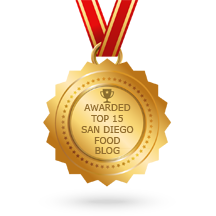Seabreeze Organic Farm Soldiering On
Seabreeze Organic Farm is one of the oldest CSAs in San Diego. But with less than two acres to work on in a hilly spot in Carmel Valley with soaring views of Torrey Pines State Reserve and the Pacific Ocean beyond, farmer Stephenie Caughlin is toughing out a drought, encroaching development, and consumers who, she says, just don't get the value of what she provides.
Caughlin, originally from southern Texas, grew up tending her grandmother's farm animals but left for an academic life that included teaching high school for San Diego Unified School District. She gave that up to become a gold broker and then a futures trader, operating her own company that included an office in Manhattan's World Trade Center.
But when she turned 40, Caughlin decided she wanted to do something more meaningful. For her that meant farming. She found the Carmel Valley property in 1978 and, she says, "I picked up a shovel and I started ordering seeds from catalogues."
At the time there were few houses and mostly chaparral and groves of old eucalyptus trees. Ten years later she started Seabreeze. While she follows organic practices, she is adamantly not certified. "The federal government can't regulate integrity," she insists.
The farm is in a pastoral setting dotted with little buildings she's put up over the years. There's the home she and her husband live in at the top of a steep driveway that's the farm's entrance. And there's the usual packing shed and storeroom full of CSA bags, produce, and eggs that her 40 chickens produce--well, that some produce. If they've outlasted egg production, they hang out in retirement.
There's also what Caughlin calls her "growing studio," a clear, greenhouse tarp-covered space filled with furniture and even a swamp cooler. The studio is used by artist Stan Goudey, who teaches watercolor classes. There's a little building with a room virtually wallpapered with Caughlin's beautiful watercolors that's often used as a changing room for brides. Yes, she holds events, including weddings, at the farm. The office is filled with even more watercolors.
And then there's the straw bale house, which she rents out to people looking for a bit of an escape. Yes, the house is made of straw bales, and includes the requisite "truth window" that proves the walls are made of straw.
It's a light and airy space that looks out onto the various stretches of producing fields.
When I was there, red leaf mustard was growing high, topped by vibrant clusters of yellow blossoms that tasted like horseradish without the dastardly kick.
Fences were lined with sweet peas about to explode in color. The hothouse was bursting with Batavian Crisp Head lettuce, a delightful variety in reds and greens that's part butter lettuce and part romaine. The lettuces were bordered by pots of thick green bok choy.
Down the path was her plot of vertical growing boxes. These were filled with mesclun, chives, baby celery, strawberries--basically fast-growing plants. The benefits to growing with this method, Caughlin explains, is that it requires less water, there are fewer weeds, and animals don't rampage the plants and produce. The downside, however, is that it's labor intensive and so more expensive.
Interspersed with the vegetable plots are flower beds and fruit trees--avocados, peaches, plums, figs, guava, oranges, grapefruit, lemon, and blood oranges are among her crops. The flowers are her passion, including edible flowers.
Actually, everything around the place is her passion, including her two goats, Elsa and Beatrice, her flock of ducks, and Samantha, the black corgi who followed us from one stop to the next.
Caughlin used to lease more acreage but development and lack of water put an end to that. At the bottom of the hill by the vertical growing boxes mulberry trees line a path that neighbors use to walk their dogs. On the other side of the path are homes. She's tried to interest her neighbors in using her CSA but, she sighs and shrugs, she's had no takers.
Currently, Caughlin has 93 subscribers to her weekly CSA and she's grateful for their support so she can keep the farm going. These are the people who she feels understand both the quality of the food she provides and the great labor and expense the undertaking involves, including delivery. Unlike other CSAs with drop- off spots, Seabreeze delivers CSA bags directly to homes and businesses.
Years ago, Caughlin sold at farmers markets but chucked that. Instead, she hosts events and cooking classes, concerts, and weddings to bring in needed income as well as introduce people to the farm and her crops. She's looking for other outlets for her products--perhaps a local market to sell her flower bouquets. She partners with other organic growers to provide produce she doesn't grow, like bananas. Her website includes information about the CSA and also has an online shop where visitors can purchase produce, eggs, herbs, books, beeswax candles, and soaps. She has a link for people to contribute to Save the Children and she's involved with San Diego Military Outreach Ministries, which provides services--including food--to enlisted families. That makes for a lot of balls to keep in the air, but really, she's just happy farming.
"I love what I do," she says. "I love feeding people. I think it strengthens them."
Print Page




























No comments:
Post a Comment